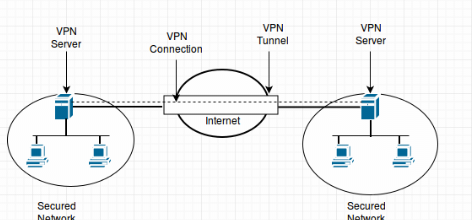Why might you Choose VPS Hosting for Financial Data Analysis?
Financial companies work with numbers all day. They look at profit and loss statements, track spending, and predict market trends. But handling this data needs serious computing power.
VPS hosting gives you your own slice of a server. You get guaranteed resources without paying for a whole physical machine. For financial work, this setup makes sense.
Quick Facts:
- Cost per Record: The average cost per compromised record containing sensitive data in the financial sector is $181.
- Intel Xeon and AMD EPYC processors are ideal for financial workloads.
- The financial sector consistently ranks among the industries with the highest costs per data breach.
- An IBM report found that approx 37% of customers would change financial institutions following a data breach, and stock prices can drop by an average of 7.5%.
- According to a 2022 survey, 25% of respondents said nearly all of their decisions are driven by data, while 44% said most of their decisions are.
Why Financial Data Processing is Different?
Banks process millions of transactions daily. Investment firms run complex calculations on market data. Insurance companies analyze risk patterns across thousands of policies.
This systematic evaluation transforms raw financial data into actionable insights that drive strategic business choices. But regular web hosting can’t handle these loads. Regular hosting provides limited bandwidth that cannot handle these loads when you run heavy calculations. You need dedicated CPU cores and memory.
Financial institutions also face strict rules. The government watches how you handle customer data. One mistake can cost millions in fines.
Why a VPS is the Smart Choice for Financial Data Analysis?
Tired of waiting for slow processing or worrying about security?
A VPS gives you:
- Faster computations – No shared resources slowing you down.
- Bank-grade security – Isolated environment for sensitive data.
- Full control – Install custom tools and scale on demand.
See how a VPS can streamline your workflow
What Makes VPS Better for Number Crunching?
-
Real Processing Power
Financial analysis software consumes CPU cycles. When you run Monte Carlo simulations for risk assessment, your processor works overtime. Ratio analysis across thousands of companies needs parallel processing.
Financial data analysis involves evaluating financial data to assess a company’s performance, identify trends, and make informed decisions about future operations. VPS gives you multiple CPU cores that work simultaneously. While other hosting services share one core among others, VPS reserves cores just for you.
-
Memory That Actually Works
Financial databases are huge. Balance sheets, income statements, and cash flow data from years of operations take up gigabytes of RAM. Analytics tools like R and Python load entire datasets into memory for faster processing.
-
Fast Data Access
Financial data analysis requires knowledge of analytical methods, including ratio analysis, DCF analysis, and breakeven analysis. These calculations read and write data constantly. Traditional hard drives create bottlenecks.
SSD storage in VPS plans reads data 10 times faster than spinning disks. Your database queries finish in seconds instead of minutes.
Technical Requirements for Financial Analysis
CPU Specifications
Look for VPS plans with at least 4 CPU cores running at 3GHz or higher. Financial modeling benefits from single-thread performance, while data processing scales with multiple cores.
Intel Xeon processors handle financial workloads well. AMD EPYC chips also deliver good price-to-performance ratios for budget-conscious firms.
RAM Planning
Start with 8GB RAM minimum. Here’s what different analysis types need:
- Basic ratio analysis: 4-8GB
- Portfolio optimization: 8-16GB
- Risk modeling: 16-32GB
- High-frequency trading analysis: 32GB+
Storage Architecture
Financial data grows fast. A mid-size investment firm might generate 100GB of market data monthly. Plan for SSD storage, with room to expand.
NVMe SSD delivers the fastest database performance. SATA SSD costs less but still beats traditional drives.
Network Requirements
Real-time data feeds need stable connections. Market data providers push constant updates during trading hours.
Security That Meets Regulations
Data Protection Standards
Financial firms must encrypt data at rest and in transit. VPS hosting lets you install custom encryption tools and configure security policies.
Your VPS runs isolated from other users. A security breach on another account on the same server can’t access your financial data.
Compliance Framework Support
The RTS requires the use of electronic identification, authentication, and trust services (eIDAS). Different regulations apply based on your business type:
Banking: GLBA, SOX, Basel III requirements, Investment: SEC reporting, FINRA compliance
Insurance: State insurance regulations, Credit Cards: PCI DSS standards
VPS hosting supports the security controls these frameworks require. You control user access, logging, and audit trails.
Backup and Recovery
Financial data loss creates legal problems. Regulators require firms to maintain complete records for years. Your VPS setup needs automated backups with point-in-time recovery.
Daily incremental backups capture changes without eating bandwidth. Weekly full backups ensure complete data protection. Store backups in different geographic locations for disaster recovery.
Common Financial Analysis Tasks
-
Portfolio Management
Investment managers run optimization algorithms that test thousands of asset combinations. These calculations compare expected returns against risk levels to find optimal allocations.
Modern portfolio theory requires matrix calculations on correlation data between hundreds of assets. This processing benefits from multiple CPU cores working in parallel.
-
Credit Risk Assessment
Banks evaluate loan applications using scoring models that analyze applicant data against historical default patterns. These models process personal financial information, employment history, and credit bureau data.
Real-time credit decisions need fast database queries across millions of records. SSD storage and adequate RAM prevent delays that frustrate customers.
-
Market Data Analysis
We configure ETL pipelines to extract raw data from different sources and clean and transform it. Trading firms process price feeds, news sentiment, and economic indicators to identify profitable opportunities.
These systems ingest data streams 24/7, even when markets close. International forex markets never stop, so your analysis infrastructure needs constant uptime.
-
Regulatory Reporting
Financial institutions file dozens of reports monthly. These reports aggregate transaction data, calculate ratios, and format outputs according to regulatory specifications.
Report generation often runs during off-hours to avoid impacting daily operations. VPS hosting provides dedicated resources that don’t slow down during peak processing times.
Choosing Your VPS Setup
Performance vs Cost
Entry-level VPS plans cost $2-5 monthly but limit CPU performance. Mid-range options at $10-20 monthly handle most financial analysis tasks. High-performance configurations cost $70+ but support real-time trading applications.
Consider your analysis frequency. Monthly reports need less power than daily risk calculations.
Geographic Location
Latency matters the most for financial data. If you trade US markets, choose VPS hosting in New York or Chicago near major exchanges. European firms should pick London or Frankfurt locations.
Provider Selection
Not all VPS providers understand financial requirements. Look for hosts with:
- SOC 2 Type II audits
- 99.9% uptime guarantees
- Phone support
- Compliance expertise
- Financial industry references
Scaling Options
Financial data analysis needs to change quickly. During market volatility, processing requirements spike. Choose providers that allow easy upgrades without downtime.
VPS solutions scale faster than traditional hosting. You can add CPU cores or RAM in minutes, not days.
Getting Your System Running
-
Initial Setup
Start by installing your operating system. Linux distributions like Ubuntu or CentOS work well for financial applications. Windows Server if you are not familiar with Linux and also supports Microsoft financial software.
Configure firewalls to block unnecessary network access. Install security patches immediately. Set up monitoring to track system performance.
-
Data Migration
Moving financial data requires careful planning. Schedule transfers during low-activity periods. Test all applications before going live. Document every step for compliance audits.
Use encrypted connections for data transfer. Verify data integrity after migration completes. Keep old systems running until new ones prove stable.
-
Performance Monitoring
Financial analysis systems need constant monitoring. Track CPU usage, memory consumption, and disk I/O patterns. Set alerts for performance issues before they impact operations.
Monitor network connectivity to data providers. Brief outages can cause analysis errors or missed trading opportunities.
Making It Work
VPS hosting gives financial firms the computing power they need without breaking budgets. You get dedicated resources, better security, and compliance capabilities that shared hosting can’t match.
The financial industry runs on data analysis. Whether you’re calculating loan risks, managing portfolios, or tracking market trends, your hosting infrastructure determines what’s possible.
Start with a mid-range VPS configuration. Monitor your usage patterns for a few months, then adjust resources as needed. Most financial analysis tasks don’t need the most expensive hosting, but they definitely need more than basic shared plans.
Your analysis results are only as good as your infrastructure. VPS hosting provides the stable foundation that financial data analysis requires.
FAQs
1. Why is VPS hosting considered better for financial data analysis?
VPS provides dedicated CPU cores and memory, fast SSD storage, and isolated resources, ensuring your financial models and analysis software run without performance issues or memory errors.
2. What are the minimum technical specifications for a VPS for financial data analysis?
You should look for a VPS with at least 4 CPU cores running at 3GHz or higher, a minimum of 8GB of RAM, and SSD storage (NVMe for the fastest performance). A 1Gbps network connection is also recommended for real-time data feeds.
3. How does VPS hosting help with security and compliance for financial data?
VPS hosting allows you to install custom encryption tools and configure security policies to meet regulatory standards like GLBA, SOX, and PCI DSS. The isolated environment of a VPS protects your data from security breaches on other accounts, and you have full control over user access, logging, and audit trails.
4. What types of financial tasks are well-suited for a VPS?
A VPS is ideal for a wide range of tasks, including portfolio management, credit risk assessment, market data analysis, and regulatory reporting, all of which require significant processing power, fast data access, and dedicated resources.
5. How can a VPS help me meet regulatory reporting requirements?
VPS hosting provides the necessary security controls for compliance frameworks like GLBA and PCI DSS. You have full control over user access, logging, and audit trails, which are essential for regulatory reporting.
6. Does the geographic location of the VPS matter for financial analysis?
Yes, latency is a critical factor. For trading US markets, it is best to choose a VPS hosted in New York or Chicago. For European markets, locations like London or Frankfurt are ideal to ensure a low-latency connection.
7. How does a VPS’s storage architecture affect performance?
Financial data analysis involves constant data reading and writing. SSD storage is crucial as it’s 10 times faster than traditional hard drives. For the fastest database performance, NVMe SSD is recommended.
About the Author: Jason-Pat
Founder & CTO at AccuWebHosting.com. He shares his web hosting insights at AccuWebHosting blog. He mostly writes on the latest web hosting trends, WordPress, storage technologies, Windows and Linux hosting platforms.



